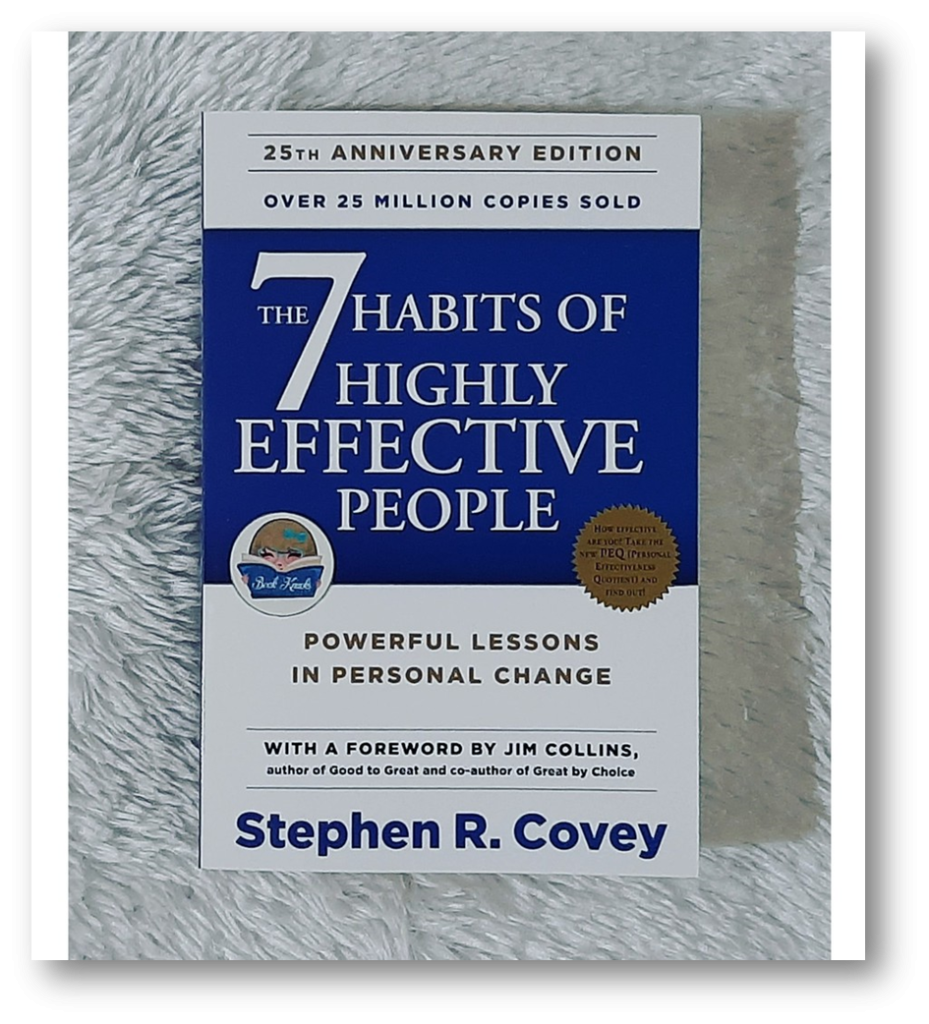We often wonder how exalted people got to where they are and what influenced the development of their careers and professional lives. Was it talent or hard work? Probably yes! But the secret to success in many cases is simply – consistency. Good practices we repeat regularly in small steps bring us closer to achieving goals that sometimes seem unattainable.
In my article, I would like to refer to a book that strongly changed my way of thinking and made what I do, both in my professional and private life, achieve better results. I am talking about Stephen Covey’s book “7 Habits of Effective Action.”

One of the basic tenets of the author’s philosophy is the profound impact of daily habits on our effectiveness and success. Understanding and implementing these habits into our daily routines can significantly improve our professional lives.
I would like this post to encourage you to read the book and make small changes in your life and reap the benefits of what is at your fingertips.
Be proactive
The first habit introduced by Covey is the concept of proactivity. Being proactive means taking control of our actions, attitudes, and reactions. We are one step ahead. In the workplace, proactive people don’t wait for problems to arise; they anticipate challenges and take the initiative to meet them.
By cultivating a proactive mindset, employees can become more empowered and engaged in their work, which naturally translates into their performance. Proactivity fosters a sense of responsibility, thus leading to increased productivity and efficiency. In addition, proactivity helps one become noticeable to others. Proactive team members often gain more trust among other team members; they are an authority, and proactivity is often a trait of leaders.
Begin with the end in mind
Covey’s second habit encourages us to clarify our long-term goals before starting tasks. This principle emphasizes the importance of having a clear vision and direction in the workplace. People who start with a goal can better prioritize their work and make decisions in line with organizational goals.
By focusing on desired outcomes, we can more effectively direct our efforts and contribute to the overall success of the team or company. A clear goal directs us to specific actions, allows us to focus on the tasks that lead us to them, and we are less susceptible to distractions that pull our attention away.
Put first things first
Effective time management is essential for productivity and success in the workplace. Covey’s third habit emphasizes prioritizing tasks based on their importance and urgency. Employees can maximize their impact and achieve better results by identifying and focusing on high-priority activities. Putting things first also involves setting boundaries, delegating tasks when necessary, and avoiding distractions derailing productivity.
Think win-win
Covey’s fourth habit promotes a collaborative mindset that seeks mutual benefit in interactions. A win-win mentality fosters cooperation, teamwork, and positive relationships among colleagues in the workplace.
Employees can build trust and create a supportive work environment by looking for solutions that benefit all parties involved. Thinking win-win also encourages creative problem-solving and innovation as individuals work together to find mutually satisfying outcomes.
Seek first to understand, then to be understood
Effective communication is critical for success in the workplace. Covey’s fifth habit emphasizes the importance of listening empathetically and seeking to understand others’ perspectives before expressing our own. People can improve their relationships with coworkers, clients, and managers by practicing active listening and empathy. Seeking first to understand promotes clarity, mutual respect, and effective collaboration, leading to better outcomes and fewer misunderstandings in the workplace.
Synergize
Covey’s sixth habit emphasizes the power of cooperation and teamwork. Synergy occurs when individuals work together to achieve results greater than the sum of their parts. In the workplace, synergy fosters creativity, innovation, and problem-solving.
By leveraging team members’ diverse skills, experiences, and perspectives, we can generate new ideas and approaches to challenges. Synergy also strengthens relationships and builds camaraderie among colleagues, creating a positive and supportive work environment. Applying this principle will help you win people over, which in turn will have a positive impact on your well-being and your productivity.
Sharpening the saw
The seventh habit encourages investment in personal and professional development. In the workplace, continuous learning and self-improvement are essential to staying relevant and advancing one’s career. People who prioritize taking care of themselves, building skills, and development opportunities are better equipped to handle challenges and seize opportunities for advancement.
Sharpening the saw also promotes work-life balance and prevents job burnout, ensuring that employees can maintain high levels of productivity over the long term. Remember that the brain needs to rest! Maintaining a balance between project tasks and other activities during the day will give you a boost that will positively affect your focus and work output.
Summary
Incorporating Covey’s 7 habits of highly effective people into our daily routine can improve our work lives. Employees can increase their effectiveness, productivity, and satisfaction in the workplace by cultivating proactivity, vision, prioritization, collaboration, empathy, synergy, and self-improvement.
Whether you are a manager, a team member, or an individual contributor, adopting these principles can lead to greater success, fulfillment, and well-being in your work and private life.
***
If you are interested in the topic of growth in the IT industry, be sure to also take a look at other articles by our experts.
















Leave a comment